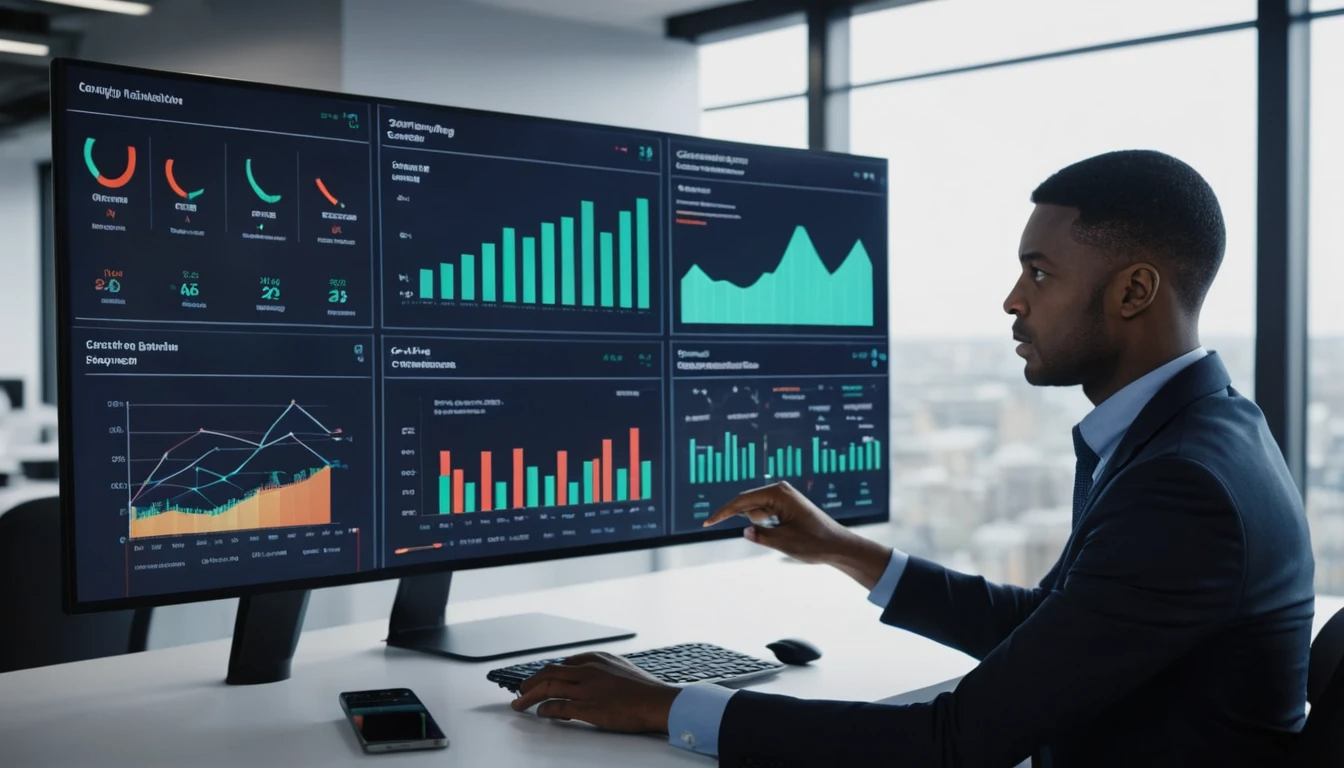
It was a typical Monday morning because the situation was very panic . Emails were pouring in and the systems were slowing down because every IT manager’s worst message appeared on the screen. “The network’s down again!”
But the things was very calm this Monday, Morning.
Sarah, an IT manager working at a finance firm in London.She was enjoying her morning coffee when she realized something unusual . Everything was quiet and perfectlty calm. No calls, no alerts, no system crashes.
Later, she discovered the reason. The company’s new AI-powered IT system had spotted a server issue in the middle of the night and fixed it automatically before anyone even knew.
Before this, Sarah’s team had been stuck fixing one problem after another from many years. But now, things were different.
With the help of artificial intelligence, their system could finally stay one step ahead and predicted the issues before they even started.
From Firefighting to Future-Proofing
In the past, IT departments were always reacting to problems. A printer broke down? Create a ticket.
The website crashed? Create a ticket.
Someone forgot a password? Create another one.
But now, we’re entering a world where technology can heal itself.
AI tools are constantly watching over systems. They analyze data and spot the early signs of trouble better than humans can. If a server starts heating up, or if software slows down. Unexpectedly, AI doesn’t wait. It automatically runs a fix, reroutes resources, or alerts the right person instantly.
This shift from reactive to predictive IT leads to making businesses faster, safer, and far less stressful to manage.
Real-World Magic: Where AI Is Already at Work

A cursory glance to few real examples:
- Microsoft 365 and Google Cloud use machine learning to predict service issues when a service might slow down or crash. If one data center gets overloaded, the system automatically reroutes users that would leads to no downtime, no chaos.
- IBM Watson AIOps works like a digital guardian and monitor the company networks day and night. It quietly fixes small issues like memory leaks or failed processes, before they turn into big problems.
- Even UK banks and airlines are using predictive AI tools to catch errors in their systems that would prevent them from crashes or failed transactions that could affect thousands of customers.
In short: AI isn’t just watching your IT — it’s protecting it.
How AI Knows Something’s About to Break

It might be sound like magic, but it’s really all about data — tons of it.
Every click, login, or background process in your system runs behind a trail of information: logs, speed reports, performance stats, and even tiny error codes.
AI tools read all of this data. Over time, they have to be start recognizing patterns that appear right before something goes wrong like a program slowing down or a sudden spike in CPU usage. Once they spot the warning signs, they act immediately to stop the problem before it spreads.
Think of it like having a digital doctor for your technology .Once that constantly checks your system’s health and applies treatment the moment it’s needed.
Some advanced systems even use Natural Language Processing (NLP) to read old IT tickets.So they have to be learn from past mistakes and get smarter with every fix.
Why Businesses Love Predictive IT
For businesses, this technology is a total game changer.
System downtime doesn’t just a waste of time .It costs money, frustrates employees and can even shake customer trust.
But with AI constantly on watch. Most problems get solved before anyone even notices something’s wrong in system.
No more midnight emergency calls for the IT team.No more panic over crashing systems because everything just smoothly do the operations and peace of mind.
And here’s the best part: AI isn’t here to replace people.
It’s here to free them . So they can focus on creative ideas, innovation, and the kind of work that actually moves a company forward.
The Future: Zero Tickets, Maximum Efficiency
Imagine a future where IT teams don’t react to problems — they prevent them entirely.
Not only AI won’t just predict failures but also it will improve systems on its own that makes apps faster, networks safer, and technology more reliable.
And the best part? You might not even notice it is happening because everything will simply do a work.
So, the next time your computer runs smoothly on a Monday morning, take a moment to thank the invisible AI quietly keeping your digital world alive.











Leave a Reply